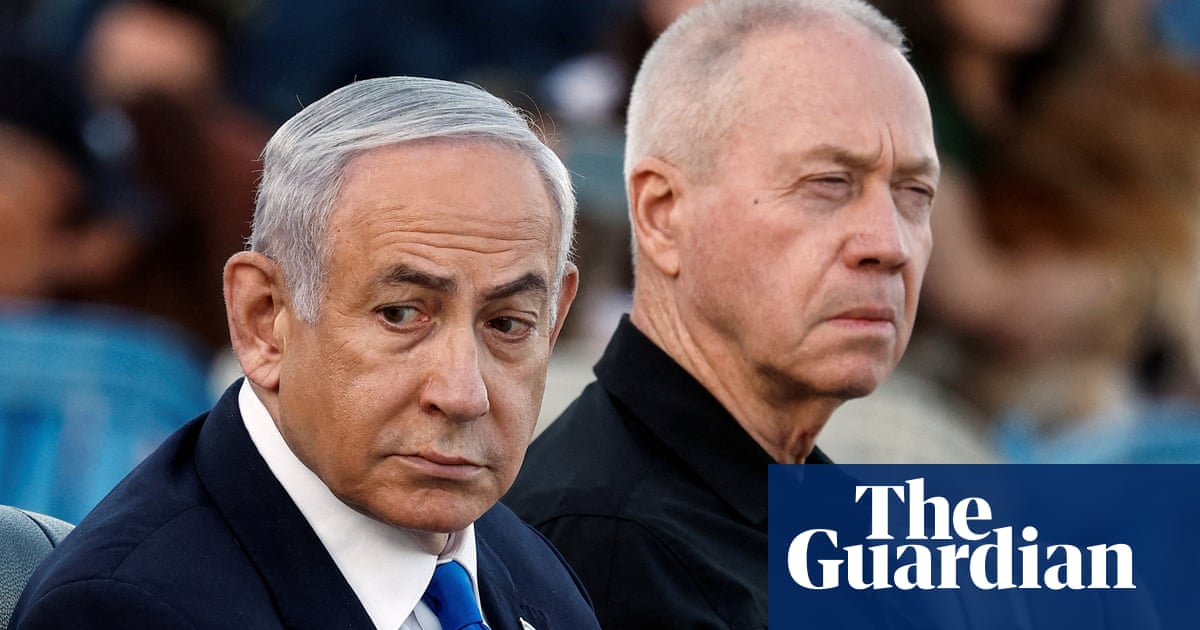Headline: France Claims Netanyahu Has Immunity from ICC Arrest Warrants
Article:
In a controversial turn of events, the French government has announced that Israeli Prime Minister Benjamin Netanyahu possesses immunity from arrest warrants issued by the International Criminal Court (ICC) for alleged war crimes. This declaration stemmed from Netanyahu’s cabinet agreeing to a French-backed ceasefire in Lebanon, marking a significant development in international relations amid rising tensions in the region. The statement also contrasts sharply with France’s previous stance regarding a similar warrant for Russian President Vladimir Putin.
France’s Change in Tone on ICC Warrants
On Friday, following the ICC’s announcement of arrest warrants against Netanyahu and his former defense minister, Yoav Gallant, the French foreign ministry appeared to support its obligations as a signatory to the Rome Statute, the founding document of the ICC. The initial response indicated compliance with potential ICC requests for arrest, should either leader enter French territory.
However, just a few days later, this position shifted. On Wednesday, officials in Paris asserted that Netanyahu and Gallant could not be arrested due to Israel’s non-membership in the ICC. The French foreign ministry clarified that, “a state cannot be held to act in a way that is incompatible with its obligations in terms of international law with regard to immunities granted to states which are not party to the ICC.” The statement underscored that such immunities must be taken into account if the ICC were to call for their apprehension.
This evolving narrative raises questions about France’s commitment to the principles of the ICC and international law.
Implications of France’s Position
Human rights organizations swiftly criticized France’s stance. Amnesty International France declared that the position is inconsistent with France’s obligations as a member of the ICC. “A cornerstone principle of the ICC statute is that no one is above the law, including heads of state sought for arrest, such as Vladimir Putin or Benjamin Netanyahu,” said a spokesperson. This perspective emphasizes the accountability that international law mandates, irrespective of a country’s membership status with the ICC.
This situation poses significant implications for international accountability and the French government’s credibility on the global stage. The apparent disparity in treatment between leaders of non-member states raises concerns regarding the selective application of international laws.
International Reactions and Responsibility
David Lammy, the UK Foreign Secretary, addressed concerns over Netanyahu’s arrest warrant during a recent parliamentary session. He reaffirmed the necessity of engaging with Netanyahu but emphasized his obligation under UK law to refer any Israeli leader to the domestic courts should they enter the UK. “Should those named seek to come into our country, that doesn’t allow me any discretion,” Lammy stated, highlighting the legal framework within which governments must operate.
This engagement raises further questions on how countries balance diplomatic relations with legal obligations concerning war crimes and human rights violations.
Contextual Background: ICC’s Jurisdiction and Member States
The ICC, established in 2002 to prosecute individuals for war crimes, genocide, and crimes against humanity, operates under the Rome Statute, which outlines the court’s jurisdiction and the rights of member states. As of now, Israel is not a signatory, which complicates its interactions with the ICC. The court has made significant strides in attempting to hold leaders accountable, but the effectiveness of these efforts can often be hindered by geopolitical dynamics and the non-cooperation of national governments.
The Broader Impact
The conflicting stances of France regarding the ICC warrants may reverberate beyond its borders, influencing global perceptions of justice and accountability. Should France continue to maintain this immunity stance for individuals like Netanyahu, it could embolden other leaders accused of similar crimes to evade international scrutiny.
Furthermore, the situation will likely also impact peace negotiations and ceasefire efforts in conflict zones like Lebanon, as the perceived lack of accountability could lead to a diminished trust in international institutions, complicating future diplomatic efforts.
As the international community monitors these developments, the principles of accountability and justice remain at the forefront of discussions surrounding leadership and governance.
Call to Action
What are your thoughts on France’s position regarding Netanyahu’s immunity from the ICC? Do you believe this will impact international accountability? Share your insights in the comments below or engage with us on social media. For further reading on the complexities of international law and politics, check out our related articles on the ICC’s role in global governance and the implications of war crimes accusations.
Image Tag:
<img src="image-url.jpg" alt="Netanyahu and French Leaders" />Multimedia Tag:
<iframe src="video-url" title="Discussion on ICC Immunity" width="560" height="315"></iframe>Through careful scrutiny of this evolving story, it’s clear that the intersection of law and diplomacy continues to shape the global landscape—one warrant at a time.

